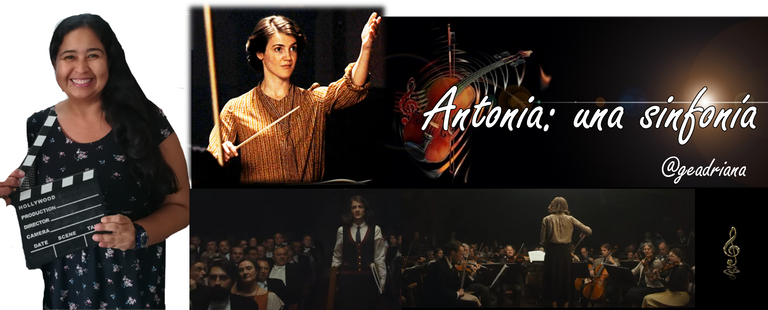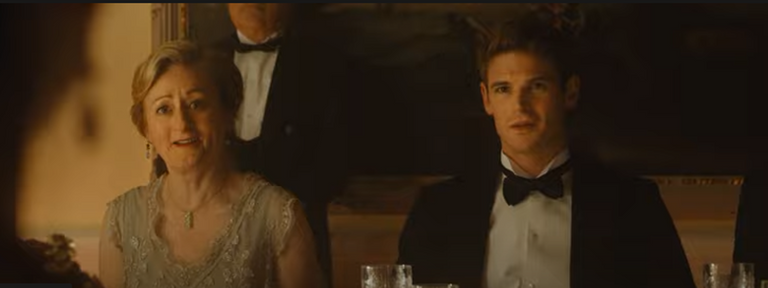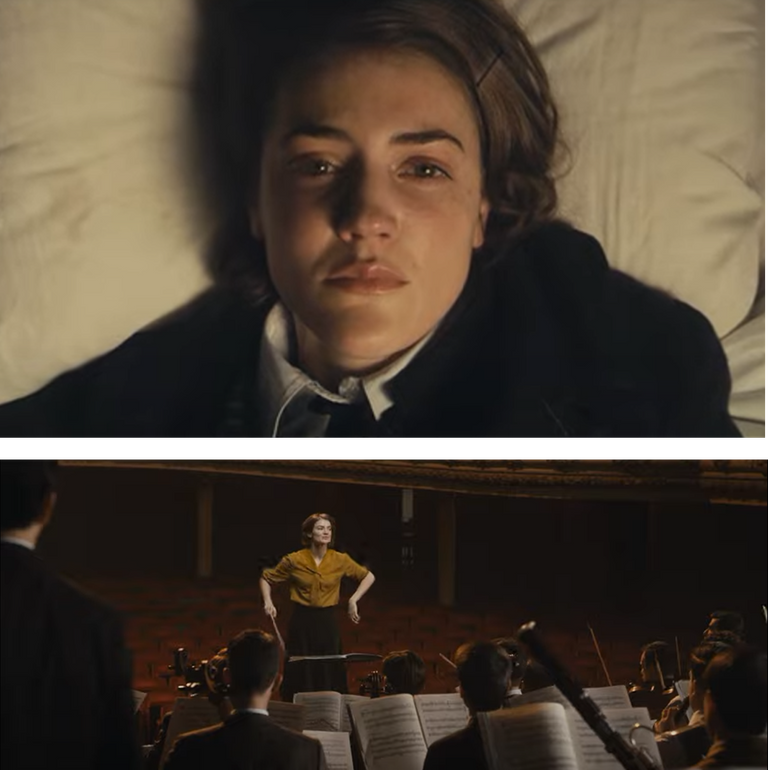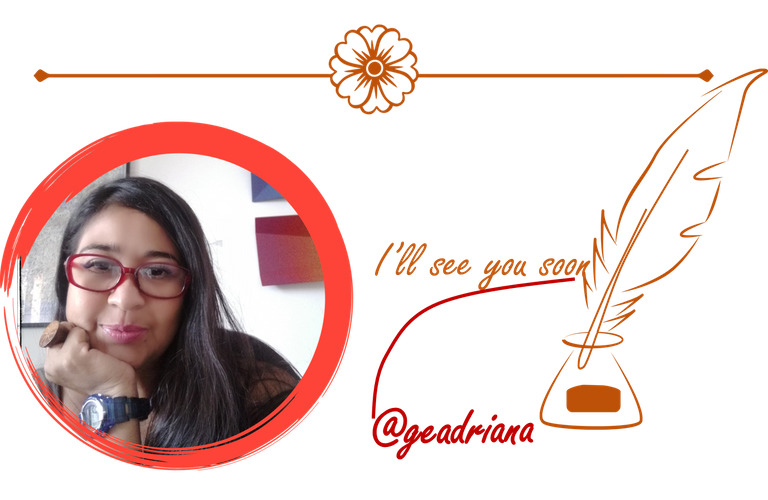Antonia: una sinfonía (Spanish/English)
Hay situaciones que ocurren en nuestras vidas que pueden llegar a frenarnos o detenernos, o incluso determinan un cambio de rumbo, que podría dejarnos frustrados, decepcionados o incluso viviendo por vivir.
Enfrentar retos no es nada fácil, sobre todo si sentimos una barrera de incomprensión, de rechazo y hasta de burla. Todo esto no puede llenar de mucha rabia y tristeza, pero si ciertamente, logramos transformar esas emociones a nuestro favor eso nos podría dar la energía necesaria para continuar a pesar de todo.
Aunque particularmente considero que no debemos catapultarnos desde la rabia, sino que debemos reflexionar y dar entonces un paso hacia la determinación y el entusiasmo, y por supuesto como siempre digo, si dejar nunca de soñar.
En esto yo considero que se basa este Film “Antonia”, que confidencialmente es el nombre de mi hermosa madre. Si quieres saber un poco más de que va esta película, te invito amablemente a que continúes leyendo, marcando como siempre mi intención de que se de tu agrado.
¡Buena Lectura!

Una sinfonía que manifiesta la desigualdad de géneros
Aunque venía de una familia humilde pudo vincularse con la música, y su trabajo en el teatro de la localidad donde habitaba le daba la oportunidad de escuchar grandes obras sinfónicas y ver el trabajo de los grandes maestros de ese entonces.
Antonia era bastante irreverente y decidida, y esto sin duda alguna la hacía diferente a muchas de las mujeres de la época que se mostraban más dóciles y que tenían como meta principal conseguir un buen esposo para construir una familia. Su núcleo familiar era un poco disfuncional y luego se enteraría porqué.
Quizás esa irreverencia y esas ganas de luchar por sus sueños atrajeron la atención de Frank Thomsen un hombre muy rico que estaba vinculado al mundo de la música. Él se interesó en ella como mujer, y aunque ella también tenía sentimientos amorosos. Frank la deseaba para establecer una relación tradicional, lo que se traducía en un cambio de rumbo en la vida de Antonia y una renuncia definitiva a sus sueños.


Yo tuve la oportunidad de ser dirigida por una mujer venezolana que estudió en Rusia dirección coral y de orquesta y fue una gran experiencia. Considero que el género no influye en ser o no un buen director. En mi humilde experiencia en el medio sinfónico coral esta ha sido la única mujer que ha dirigido obras en las que he participado, porque en su mayoría han sido hombres.
Por último, deseo destacar que, aunque la crítica tal vez no ha sido tan buena referente a esta película plantea un tema muy interesante sobre el cual vale la pena reflexionar.
Comparto con ustedes el tráiler:
English version
There are situations that occur in our lives that can slow us down or stop us, or even determine a change of course, which could leave us frustrated, disappointed, or even living for the sake of living.
Facing challenges is not easy, especially if we feel a barrier of incomprehension, rejection, and even mockery. All this can fill us with a lot of anger and sadness, but if we can certainly transform these emotions in our favor, it could give us the necessary energy to continue in spite of everything.
Although I particularly consider that we should not catapult ourselves from anger, we should reflect and then take a step towards determination and enthusiasm, and of course, as I always say, never stop dreaming.
This is what I believe this Film "Antonia" is based on, which confidentially is the name of my beautiful mother. If you want to know a little more about what this film is about, I kindly invite you to continue reading, marking as always my intention that it is to your liking.
Good reading!
A symphony that manifests gender inequality
Although she came from a humble family she was able to link herself to music, and her work in the local theater where she lived gave her the opportunity to listen to great symphonic works and see the work of the great masters of that time.
Antonia was quite irreverent and determined, and this undoubtedly made her different from many of the women of the time who were more docile and whose main goal was to get a good husband to build a family. Her nuclear family was a bit dysfunctional and she would later find out why.
Perhaps that irreverence and that desire to fight for her dreams attracted the attention of Frank Thomsen a very wealthy man who was linked to the world of music. He was interested in her as a woman, and although she also had amorous feelings. Frank wanted her to establish a traditional relationship, which resulted in a change of direction in Antonia's life and a definitive renunciation of her dreams.
Eventually, she managed to become a conductor and lead very important orchestras, without ever becoming famous or being accepted as the chief conductor. Somehow, she achieved her dreams and broke with the entrenched schemes of the time.
Whenever I see these kinds of stories I have mixed feelings because discrimination generates a shock for me, as well as the labeling of people by their gender, their skin color, or their country of origin. As a Latin American woman and scientist, I have experienced some of these things and I consider that we as humanity still have a long way to go to achieve gender equality which is goal 5 of the United Nations Sustainable Development Agenda. And that this goes beyond inclusive language, since even in the 21st century in many areas there is no real inclusion.
I had the opportunity to be conducted by a Venezuelan woman who studied choral and orchestral conducting in Russia and it was a great experience. I believe that gender has no influence on whether or not you are a good conductor. In my humble experience in the choral symphonic milieu, this has been the only woman who has conducted works in which I have participated, because most of them have been men.
Finally, I wish to point out that, although the critics have perhaps not been so good about this film, it raises a very interesting issue that is worth reflecting on.
I share with you the trailer
Translated with www.DeepL.com/Translator (free version)

https://twitter.com/adrianagam/status/1449175820132573188
The rewards earned on this comment will go directly to the person sharing the post on Twitter as long as they are registered with @poshtoken. Sign up at https://hiveposh.com.
Con el apoyo de la familia.
Trail de TopFiveFamily
Es sin duda un tema del día, aunque las leyes en algunos países la muestran como superada, la diferencia de géneros en una triste realidad que se encuentra en el día a día, incluso en el lenguaje, @geadriana